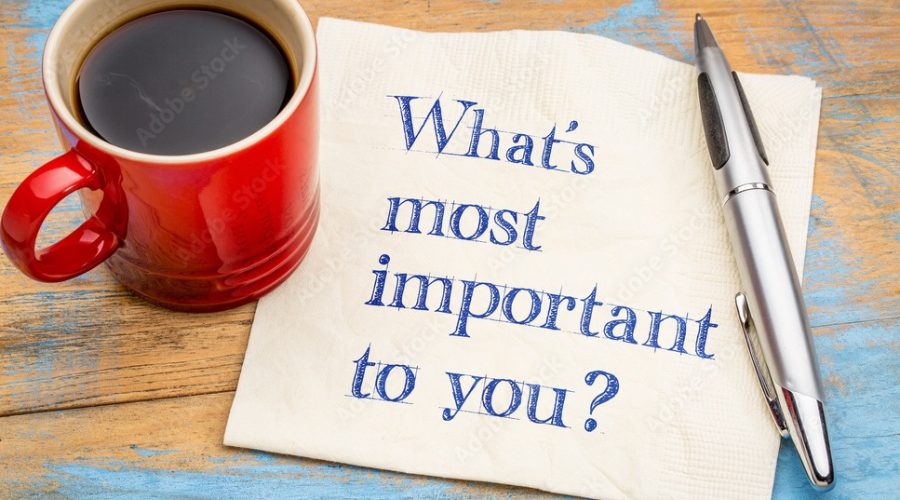The foundation of a genuinely fulfilling life is always built on a set of solid values. John Chaffee, author of the book “The Thinker’s Way”, describes the word ‘value’ as something which characterises anything that we prize, esteem, regard highly, and which possesses intrinsic worth; in other words, that which we treasure the very most in our lives. Values are our guiding principles; the lens through which we view ourselves and our world.
So why is it important to know what we value? At Sydney Hills Counselling, I see many clients who fall into four distinct categories:
Those clients who know what they value but who are suffering because their current lives don’t reflect their values.
Clients who don’t know or can’t identify what they value and are as a consequence living a life devoid of meaning and fulfilment.
Those clients who are living a life focused on values focused on ‘I should’ and ‘I ought to’ and as a result are feeling miserable.
Clients who are genuinely making an effort to live their lives according to their values, but who are facing significant challenges or barriers.
Determining our personal values can make an astonishing difference in improving the quality of our lives. Our values reflect the fundamental choices of who we are and the person we want to be. Furthermore, values provide us with the criteria that should guide and influence us in making important life decisions. Living a life that reflects our personal core values may provide us with a sense of fulfilment, as doing this means that our actions and motivations become better aligned with the person we want to become.
Our values are our guiding principles; the ‘driving force’ in our lives. They form the foundation behind what motivates us and how we operate in our lives. They form the essence of our belief system, determine our integrity, and provide us with a consistent guide to living our lives well. Our values are unique to each of us and can be significantly influenced by our culture, upbringing, spiritual or religious beliefs, and how we were educated.
Losing touch with our values happens from time to time; our busy working lives, stress, the odd life curveball hurled in our path and our hectic home lives sometimes lead to us overlooking what matters most to us. Our significant others and our circle of friends and acquaintances may also influence our values in a positive or negative way; we may have unknowingly adopted the values of others without even realising it. There can be many reasons why we lose touch with our values and the bad news is that when we do, it can lead us to experience discomfort and pain as a consequence.
Our values are the qualities that determine how we act towards ourselves and others. They may include being a caring, nurturing parent, being a loyal, committed partner or spouse, being a supportive and dependable friend, being a hardworking and focused employee etc. Unlike goals, we can’t achieve our values, we can only determine what they are and then act in accordance with them.
We can group values into four main types: values relating to other people, values relating to personal fulfilment, values relating to improving our life, and values relating to personal qualities. You can read more about the different categories of values here https://reversethinking.co.uk/personal-values-transform/#:~:text=They%20are%20what%20keep%20you,work%20of%20transforming%20the%20self.
Values not only guide us as to where to focus our efforts and energy; they also offer us a motivational springboard. Living life according to our values can not only help us bear whatever pain and difficult life circumstances we have to deal with, and it can also provide us with a sense of fulfilment and ‘get-up-and-go’ that no amount of material comfort can ever match. Our core values provide us with a compass that keeps us moving in the right direction. Living our lives guided by our core values will keep us on the path of determination, willpower, resilience, and effectiveness, enabling us to catch and deal with any unexpected curveballs that hurtle toward us.
So, how can we determine our personal values?
We can reflect on our past choices: We can decide which choices left us feeling easy and comfortable and gave us a feeling of satisfaction. These were most likely choices we made which were guided by our genuine values. If any choices we made left us feeling sad or uncomfortable, they may have been made through compromising our genuine values or by having inauthentic values.
We can recall the ‘stand-out’ moments in our lives: Evaluating and reflecting on these moments and what made them that way, can aid us in identifying our personal core values. This may highlight the times in our lives when we were aligning with our values and when we weren’t.
We can be curious: Paying attention to the decisions we make in our lives can help us to determine the ‘value’ behind each choice we make. We can ask ourselves, “Why am I making this choice?”, “Will making this choice make me feel satisfied or will it make me feel uncertain or unhappy?” These questions may help us to identify the value behind each choice we make.
We can determine and prioritise our values: Writing a list of all the values we believe apply to us can be immensely helpful and motivating. Your list can be as long or short as you like. If you are having trouble determining your values, you may want to use a values list as a guide. This one here has a fairly comprehensive list of values to choose from: https://www.cmu.edu/career/documents/my-career-path-activities/values-exercise.pdf
Here is a short video on how to determine your personal values
Although our values tend to remain stable over the course of our adult lives, they are by no means ‘fixed’. As we change and grow, so do our values. Furthermore, living our lives according to our values isn’t always possible. There will always be times in our lives when our circumstances (or individuals in our lives) will lead us to either having to compromise our values or ‘fight’ to stick with them. Knowing our values even when it’s difficult to live and act in alignment with them, not only allows us to get to know ourselves on a much deeper level, it may also help us to remain true to what we believe in and to do what’s best for ourselves when making those big life decisions.
At Sydney Hills Counselling we specialise in helping you to take on your life’s curve balls, the difficult times and the stuff you’ve ‘swept under the carpet’ for too long. Call us today on (02) 9159 6277 or email us at [email protected] to book an appointment or for a confidential chat to see if we can help you.
References:
Chaffee, J. (1998). The thinker’s way: 8 steps to a richer life. Boston: Little, Brown.
Copyright © 2023 by Sydney Hills Counselling






